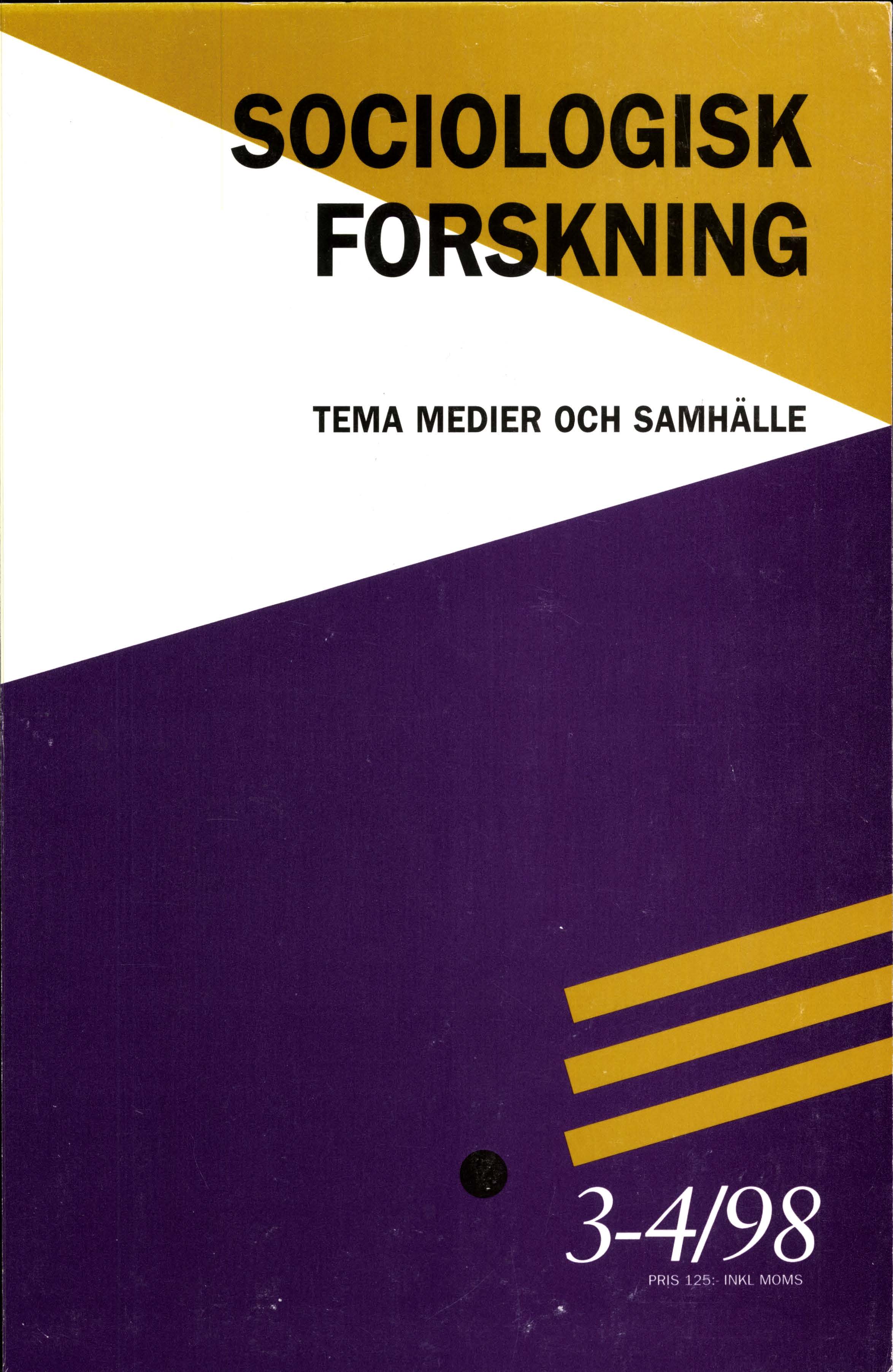Rasism och antirasism på dagordningen - studier av televisionens nyhetsrapportering i början av 1990-talet
DOI:
https://doi.org/10.37062/sf.35.18515Abstract
Racism and anti-racism on the agenda. Studies of Swedish television news in the beginning of the 1990s
The way the news defines social phenomena has significance for our collective imaginations. When the news broadcasters are about to make the world comprehensible and accessible to the audience, they have to consider and extend what is already commonly known and accepted as true. How the news media make sense of racism and anti-racism was focused in a research project comprising several substudies and different empirical data. The public television news broadcast from the beginning of the 1990s was used as the basis. This was a period when the political climate regarding refugees in Sweden was hardening and racial violence towards immigrants and refugees increased. The author's main conclusion is that, for the news to be effective and credible, the news media follow, relatively uncritically, the conventions that they themselves have created. Racism is defined as racial violence, and in the news coverage racism is reduced to a form of criminal behaviour or a pathological defect. The whole field of research that in recent decades has debated the complexity of racism remains invisible. Anti-racism, at the same time, is represented as a protest against racial violence. News coverage of racism and anti-racism, accordingly, constitutes part ofa common sense ideology of normality opposed to extremism, where anti-racist demonstrations are interpreted in terms of extremism rather than as protest against inequity or as a defence of human rights. The news media are the guardians of social control and stability, the study concludes, acting to restore the national self-portrait of a tolerant nation.
Downloads
Published
How to Cite
Issue
Section
License
All content in Sociologisk Forskning is published with immediate open access, under the Creative Commons license CC BY-NC-ND 4.0.
All content may be read, downloaded, shared and printed for non-commercial purposes, free and without fees. Contents may not be altered. When content is reused, author, source and a link to the copyright licence must be provided. The author retains copyright to their content. No publication fees are charged.





